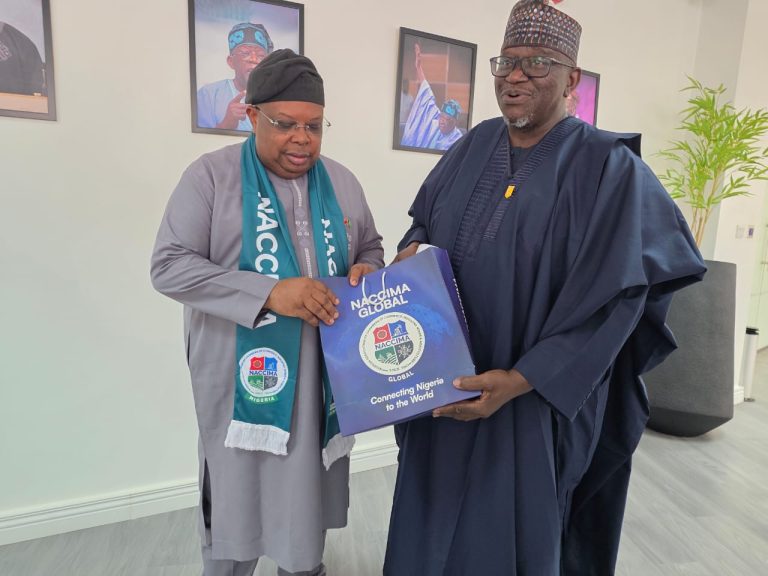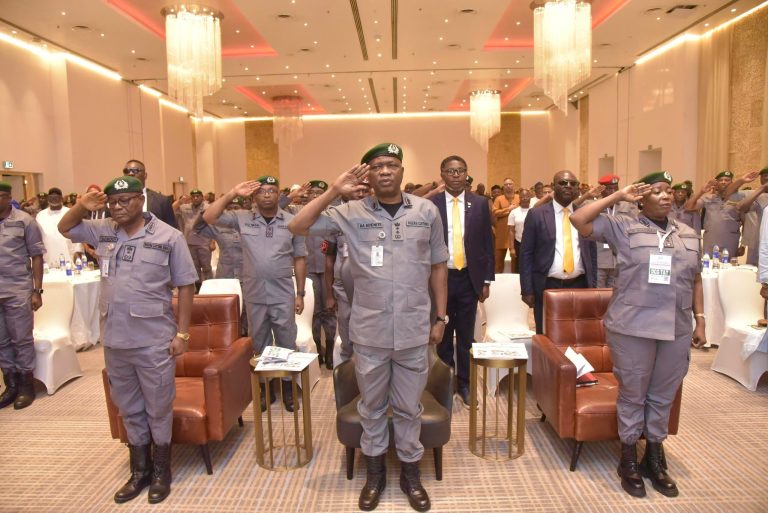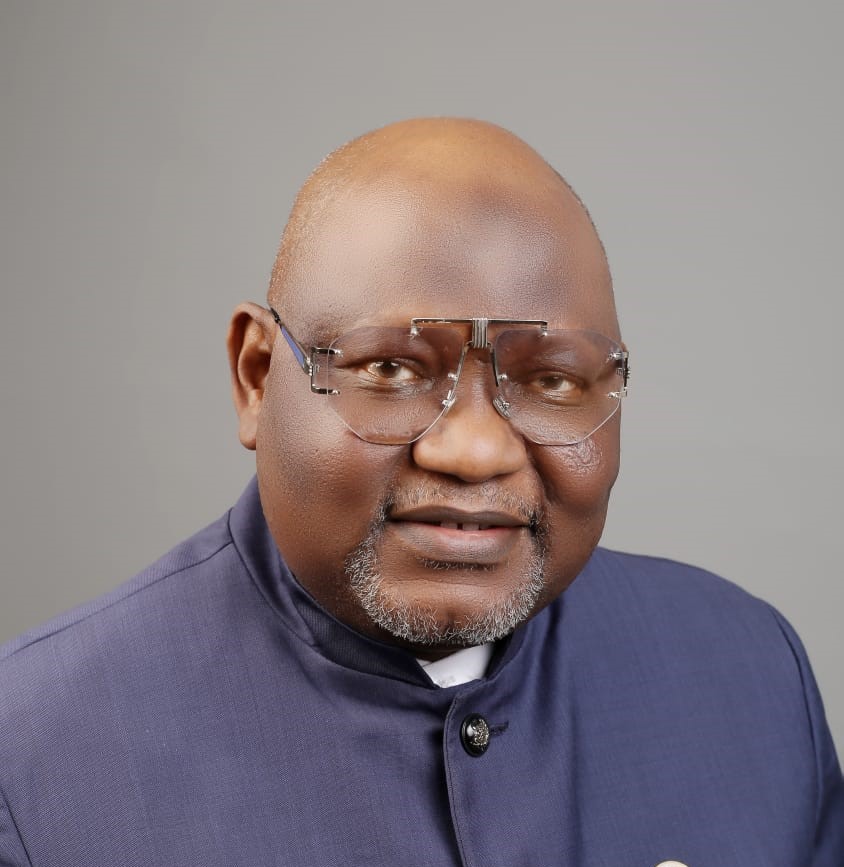
The President of the Risk Managers Society of Nigeria (RIMSON), Dr. Abbass Garba Idriss, has advised the Federal government to create an enabling environment for the establishment of an appropriate Risk Management Ministry or an Agency to oversee, control, and manage disasters in Nigeria. In this no-hold-barred interview with IKECHI ENWEREJI, Publisher/Editor-in-Chief, PEOPLE AND POWER MAGAZINE, Dr. Idriss talks about why business owners shouldn’t toil with the risk associated with their businesses and the need for the federal government to play a critical role in solving natural disaster issues. Excerpts.
Can you give us a brief background of the Risk Managers Society of Nigeria (RIMSON)?
RIMSON was established 40 years ago, and it was established with the sole aim of managing the risk management culture, but at that time, it was only in the insurance sector. Later, Chief Bailey was the one who spearheaded the establishment of the Risk Managers Society of Nigeria.
Throughout that time, they have been working and trying to ensure that the Risk Managers’ culture is tuned to the public through the insurance industry.
Later on, as the economy was expanding, the risk was also spreading, that it went through different sectors of the economy. This whole thing was solely in Lagos State, because almost all the insurance companies have their headquarters in Lagos, even before Abuja came into existence. Since then, it has been in Lagos.
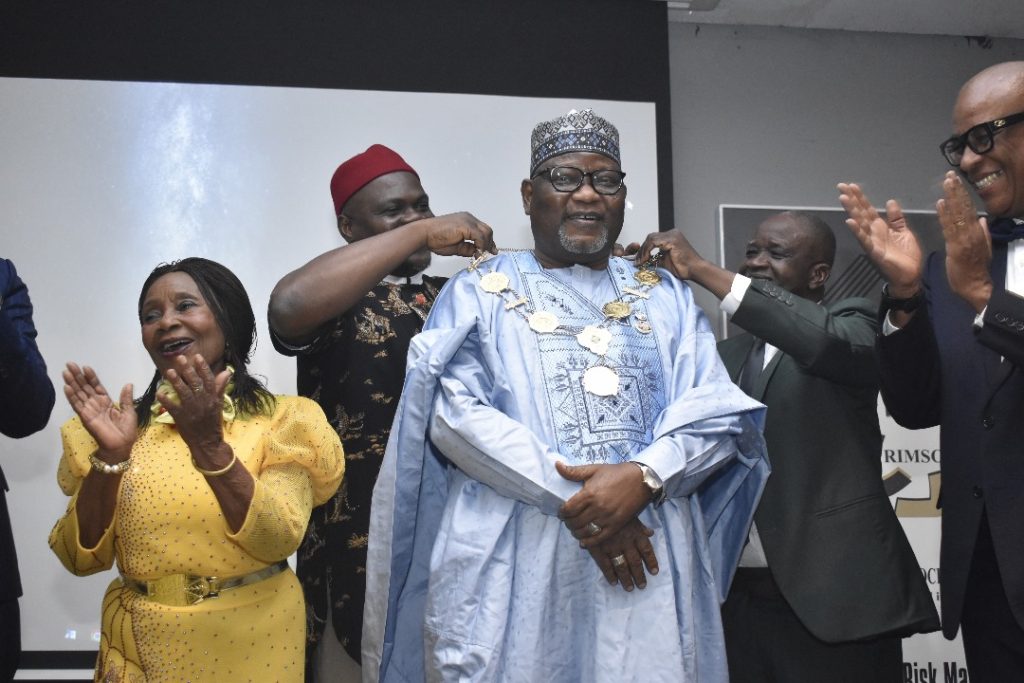
What are the main purposes and visions of RIMSON?
Like I said, the purpose is to ensure that there is a risk management culture in the public which will coordinate and bring other associations, that has similar responsibilities together to ensure that they build up a team that could work towards reducing the risk, at that time for the insurance companies, so that they can be able to minimize the loses they encountered.
We want to know if RIMSON membership is only for an interest group or a professional body.
RIMSON is a professional body; It brings together all those who are working on the risk management aspects in banks, insurance, and allied industries. In most organisations and industries, you will find that there is a risk manager who is always in charge, conducting analysis of the risk associated with any factory or industry they govern. If you go to Dangote, there is a risk management department. If you go to NDIC, there is a risk management department; if you go to CBN, all of them are looking at the risk of the organization and how they can come up with a proposal on how they can reduce the risk or transfer the risk.
Does RIMSON have any partnership with the Federal or state governments in Nigeria?
Well, this is what we are trying to do: we are trying to see how we can make the government feel the positive impact of RIMSON. We have to work together. We have to advise the government on what to do because, if you look at it critically, the government does not apply risk management in all that they are doing. If they do, we wouldn’t be having uncompleted projects, even in the insurgency that we are having, you will be sleeping, and they would counter you.
Recently, I read about whereby bandits are using power drones, and why is it that the Nigerian Army does not foresee that they could be able to do this? It is because they didn’t assess the risk. If they assess the risk, that could be part of the threats when they identify that these people could go the extra mile and apply so and so, etc.
But the government only sits down and says, okay, they will use drones; they equally thought that bandits didn’t go to school, they would not be able to use those sophisticated new technologies, and so they were caught napping.
So, the same thing, if you look at our government budgets, you also have budget deficits, and these are because we don’t know what will happen along the line. And so, for that reason, you couldn’t see that you could have abandoned projects. Certainly, things that you could not have envisaged would come up, and as soon as they come up, it will chop up the possibility of doing this project and then taking this money for this purpose.

For instance, all that the government used to say via payment of whatever, moving funds from one source to another. Let’s take the flood for example, we know that at any point in time, Cameroon releases water from its dams and it is affecting our people. And if it is affecting our people, definitely, the government has to intervene by giving them either post-disaster relief or pre-disaster materials.
And where are they going to get this? they end up getting money from other sources, which will now hinder development from this sector.
If you take the Maiduguri flood which they didn’t envisage that it would come because there was no risk assessment but if there were risk assessment, government would have able to focus and say look, this dam could do certain things and at the end of the day, we might end up having this and this. So, why can’t we plan?
If you look at the budget that is tied to the price of petrol, at the moment, as I am talking to you, our projection has dropped by ten dollars. So, we are in deficit by ten dollars now. That simply means there is no risk assessment there. If there was a risk assessment, there should be a way that we can cover up things there. Now, we are talking about a deficit because ten dollars have dropped. So, in one month, this is just May, June to December is a long time, and we don’t know what will happen.
So, we need to focus and look at the risk entirely associated with that and then identify the risk, assess them, monitor, and transfer those risks we think we don’t need or we wouldn’t be able to keep, and then keep those ones that are not harmful to us. Then those professionals, we now take care of them, even this flood we are talking about can be outsourced. Insurance companies are insuring floods. So, identify those areas and transfer those floods risk to professionals. And when it happens, you don’t need to bring a single naira from anywhere, fall back on the insurance companies, and they will pay the compensation. They will pay whatever happens based on what you have paid for. So, these are the things we want the government to embrace.
Also, we want a situation whereby they would put risk cadre into the civil service, whereby if you have a Director of Procurement, you should also have a Director of Risk Management. Anything you are procuring also needs to go through risk assessment. How do we do it? If you are procuring, for instance, the Agric ministry is procuring grains, the risk manager will look at the risk involved if we buy grains now, will it be going to pay up by the time we take it to the silos and then by the time we are bringing it out? Then, what could be the price of the grains we are buying today in the next three months? So, it will allow the government to be able to provide grains at a very affordable price, and when they come to give it out, there wouldn’t be a big difference.
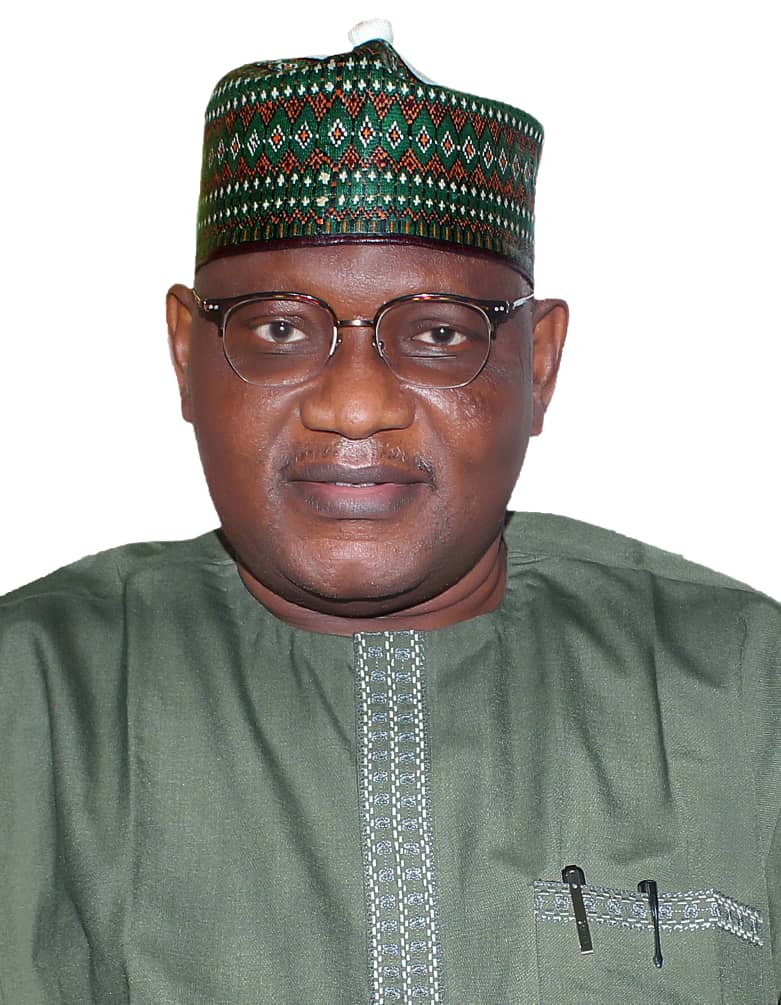
Would it be a good idea if the government could establish a Risk and Hazard Ministry?
That could have been better, and that would manage all the ministries, even if it is not a ministry, it could be an agency. Like Bureau of Public Procurement (BPP) whereby professionals can be trained and posted to the ministries. It can help a lot and, in every country, they take risk very important. That is why, the weather forecast you watch, they will say the storm is on its way from California to this, it will arrive at so time and this early warning is giving. And in our own case, we just fall into it. It just come to us and that is all. Some people will be sleeping, some will be coming back from work, some from the market, and they will just be trapped.
40 years in existence is not a child’s play. What are the landmark achievements that RIMSON have and what are the challenges facing it?
Honestly, the main thing is that they have awaken the people through education and sensitization. A lot of people got to know this especially, the private sector. They got to do that and they also imbibe that culture. And because we have enterprise risk, which most industries especially Lagos, imbibed the culture and they are using it very efficiently for their own purpose. It is mainly this side of Nigeria (North), I do not know really obvious ones. If you get a water producer and talk to him about enterprise risk, he will tell you that he doesn’t know anything about it. He just establishes and he doesn’t care about anything.
So, we want everybody, no matter what you are doing to believe that the risk is associated with what you are doing. And so, how do you cope? In a media sector, we supposed to have a radio station in Abuja that will be telling you about what you are doing. If you are leaving here, all you have to do is tune to that radio station and they will tell you the road you are going through whether it is accessible, free or what? Or there is an accidented vehicle along the line, which will hinder your movement; then they will tell you which alternate roads to take. If there is an emergency somewhere, where there is a disaster happening, they will be using the radio to redirect people to take a different route. Or maybe, it rains around Karu and you are driving towards Nyanya, they will tell you if you are going along that side, please wait for a moment in the city; do not go because there is a flood flash on the road. These are the risks that we can manage through risk management.
As the current president of RIMSON, what innovation are you bringing on board?
Well, first and foremost, I want people to really know what risk management is all about. If we can be able to get people to know about it, then we should be able to impact by giving adequate sensitization, education, and services. Our services are free because we are a non-governmental organization (NGO) that is giving those services to the public, and protecting people getting such risks. Also, we should be able to tell people to really maintain their own words.
How do they maintain their own words? You have a capital of maybe N10 million and put it up without knowing how to manage it, you don’t know about the insurance that you could use to insure such risk, whereby if anything happens to your business, you can fall back on the insurance company to pay you. But now, if you don’t know, once you have any mishap, that is the end of your business. And that is why people get depressed, and then you find out that they will never come back to their position.
The essence of taking any insurance policy is to bring you back to your position where you were before the incident. So, if you don’t take the insurance, you are on your own; there is a big problem. So, we look at it that we could improve the economy of the people and also, the gross domestic product (GDP) of the nation. By the time you can save all those, it will not affect the GDP, and also the mental health of the public will keep improving. They can rest assured they will have peace of mind, and whatever happens, they will be able to come back to their position.
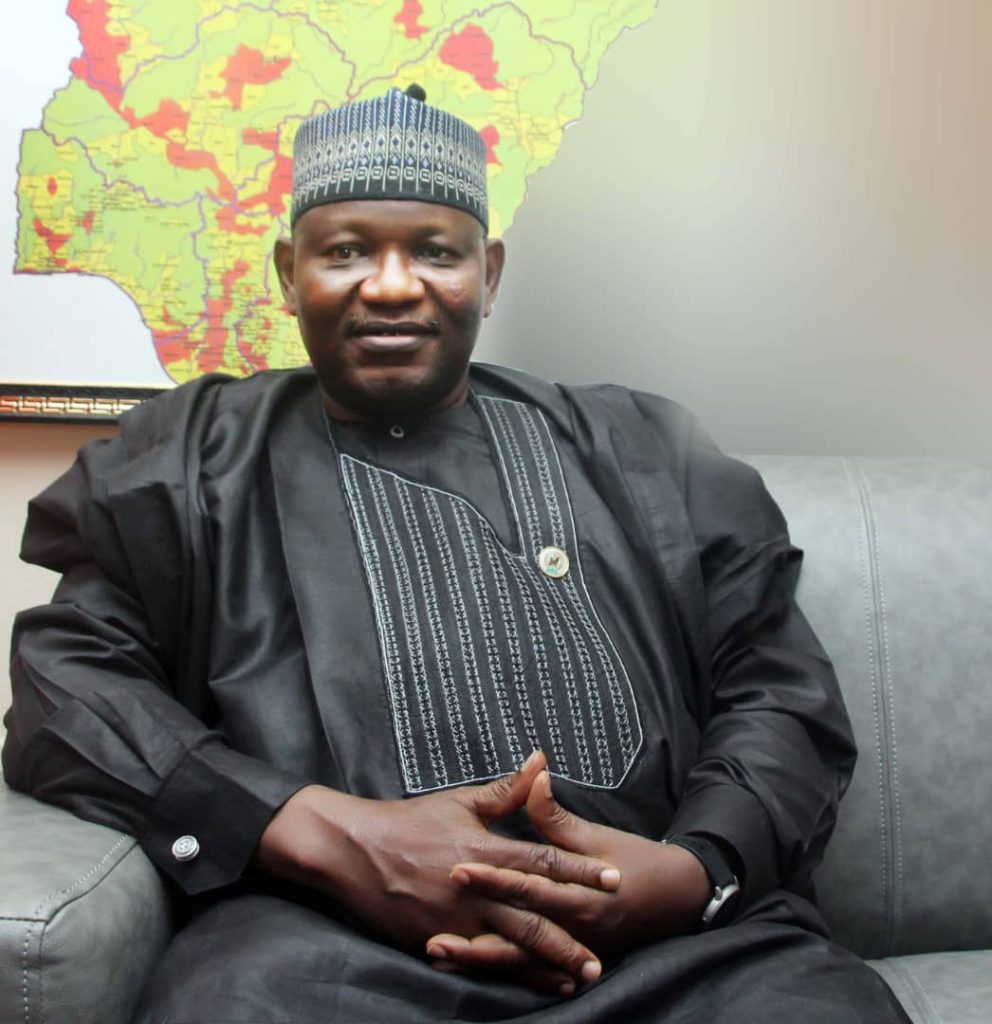
There are so many startup businesses today in the country, especially in the technology sector. What advice will you give to such entrepreneurs as regards to risk management?
Honestly, the advice I will give is that one thing they should do away with is, especially in the North, we have a common culture that we don’t always believe in such things, especially when you tell them about risk. If you tell them that this your business has risk, if it is a Christian, he will tell you it is covered by the “blood of Jesus Christ,” and if it is a Muslim, he will tell you that he “believes in destiny, after all, he will die too.”
Neither of the two religions has taught us that. The religion has made everything explicitly clear for us to be able to decide on what to do. You know you are going to die, would you now climb an electric pole and say, ‘I know I will die someday, let me go this way?’ I will follow the stairs while we are using the lift? So, it is wrong. This is the problem, those who are emerging entrepreneurs should avail themselves with all the knowledge; it is from God, and whatever procedure you should take to protect your business, do it so that you will survive the risk, and if you cannot, take it away and give it to professionals.
I read about the Head of the Civil Service announcing that they have taken Group Life Insurance for the President, Vice President, Head of Service, and all the Civil Servants. This is the risk they also take and pass it to the professionals, and about 70 insurance companies are involved in taking that risk. So, these are the things we want the federal government to do. Now, will the federal government create that opportunity for transferring the risk of group life to the insurance companies? Who is the risk manager who should be assessing that risk? There should be a risk manager who should be assessing that risk and not just a schedule officer who compiled the list and then passed it to the insurance company.
I have said it, as long as you can have a Director of Procurement, you should also have a Director of Risk Management, so that he will be able to advise, filter it, and then implement it. There is the risk that you do not need to transfer otherwise, you will end up giving free money to the insurance companies. And there are risks you cannot do without; you cannot keep them for a minute or a day. So, you must transfer them as soon as they come.
Also, there should be monitoring and ensuring that, because you transfer this, another risk is also emerging, especially with climate change. Therefore, you need to be up and doing, reviewing, re-evaluating, and then monitoring. Immediately, you see another risk coming in, remove it and pass it out before it damages the whole process.


